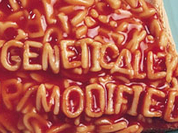The Secrets of the Chinese Longevity
Chinese understand that life depends upon your attitude toward it
Correspondent of the Zhenskoye Zdorovye magazine Yelena Fedorenko has got back home from a business trip to China and tells about today's life of Chinese, their care about health, family and children.
These are astonishing facts but the average life span, industrial development and the standard of well-being in China is higher than in all European countries. Let's take for instance, the prophecy of Napoleon who referred to China as a sleeping dragon, saying that when China stirred the world would shake.
Nevertheless, the aspiration for development doesn't diminish the popularity of the old traditions observed in the mode of living, the nutrition system and interior planning. The Chinese mode of living is the simplest and the most mysterious one at the same time. It provides wholesome existence; this is the world which laws are very understandable. What is more they are of nature that is common to all mankind. It seems that understanding of the laws is passed from generation to generation but doesn't come together with wisdom. The respectful attitude to the old age may serve one of the examples here.
In China, a person of any age feels he is needed in the family and in the society in general. The Chinese people strictly follow the Confucius wisdom: they respect parents and treat the relations between generations as the absolute. The Chinese understand the sense of life as a harmony between several generations living on the planet. And this simple truth is taken as happiness. In China, people at the age of 60-70 are not old indeed.
As well as nature people also have their period of bloom, maturity and decline; each of the periods is unique. If a man in China dies before 90, other people treat the death as early and tragic. Till the extreme old age Chinese keep lucid minds and keen memory. They are extremely kind and quiet with respect to each other.
What is the secret of the Chinese life order that is so remarkable for its longevity and health? The journalist wanted to study her own experience in China to give an answer to the question. In a couple of weeks after coming to China Muscovites felt wonderfully, the cheeks were blushing while some time before they seemed to be faded away in Moscow's haste; wrinkles became smoothed out and people hardly recollected their own diseases.
This is rather strange if we take into consideration the fact that environmental pollution is very high in the Chinese cities. The ecological situation there is rather unfavorable: the air is saturated with dust; the whole of the country is a huge construction site that stands motionless only within four hours at night.
This is strange that even though Chinese are surrounded with construction dust on all sides they take an astonishingly correct approach to health. All Chinese irrespective of the age are constantly in motion: people take a bicycle to go to the offices, to school and for shopping. Modern city roads are made so that people could use them in bicycles. There are lots of stadiums and children's sports grounds build for every particular residential area.
As for food, Chinese are refined and rational; they wonderfully combine the love for feasts and health care. The Chinese food is rich and various but at the same time it is extremely wholesome. Fowl and sea food are cooked with a variety of spicy herbs and sauces; there are many traditional salads. In fact, those dishes that are served in Chinese restaurants in Russia are sometimes not really very popular in China. The variety of wonderful dishes and a long Chinese meal are a real delight.
What is the difference between methods of meals cooking? First of all, all dishes are cooked without salt; spicy herbs and soya sauce are used instead. No sugar is also added while cooking; to make meal sweetish roots and fruits are traditionally added. Chinese cook fish, meat and some vegetables having dipped them into a mixture of eggs, spices and starch. The Chinese cuisine widely uses starch as it is believed to help keep memory active. Chinese eat little bread, they prefer only rice cooked without salt as the garnish.
While having meals Chinese can drink only some green tea or water. The apotheosis of each meal is a piece of baked fresh fish. Chinese doctors don't recommend drinking right after having meals. Even though the Chinese cuisine is so various, it's all the same rather light.
Correct nutrition means regular meals; Chinese take meals every four hours. While having meals they disregard any other problems. This is one of the main conditions that people at meals must forget all office problems. Meals are relaxation and all talks during meals must concern only nice subjects. Chinese think that meals and motion guarantee good physical health, and healthy spirits depend upon the right attitude to life. Several generations ago people surrounded their houses with tall fences and the houses were hidden from other people's eyes. The same way the Chinese people understand their inner life: the most precious of you is inside of you.
There is a saying that all diseases are caused by nerves. Every country has a similar saying, but for China where people are astonishingly quiet. The nature and the man are the creators that can establish a slow dialogue under conditions of absolute harmony. Nice and healthy life is possible only on condition that a man's inner energy is in harmony with the nature. In fact, we all perfectly understand that external circumstances depend upon our attitude to them. In China, this is one of the daily regulations that is strictly observed every day.
Chinese are brought up with the piety concerning labor and discipline, and even the discipline of labor to be more precise. The Chinese people believe in the principle that strict daily schedule moves incidents away and guarantees internal quietness.
Children are the most exciting issue in China. When you get to China you immediately understand that the country is the world's leader regarding the number of its population. While about 15 years ago there were families with several little children in China, the situation is quite different today. Chinese follow the motto "One child for one family couple"; late marriages and giving birth to children at late ages is encouraged in China. People in the country believe in importance of the measure and now every Chinese family is focused on education of their only child.
All of us know the Chinese ceremony of drinking tea which is treated very seriously in the country. Tea gathered in spring is the most expensive one and the most healing. Families with average incomes can afford drinking this sort of tea once a week only. When a guest is treated to the spring tea he is shown the highest degree of respect.
Chinese drink green tea mostly; it contains energetic and healing properties which are the mystic strength and basis of the life. Real tea experts say that green tea doesn't like fiercely boiling water, but rather water that is 90 degrees hot. To get the best properties of tea it is to be drunk from small porcelain cups. Tea-drinking is a great ritual: Chinese never add sugar to green tea and take it in sips to enjoy the aroma.
Jasmine Chinese tea is getting really very popular in other countries, while it is seldom used at home. The tea culture is part of the people's culture. People in the East say that tea is a conversation of good people. The Chinese people themselves think the secret of their even temper and restraint lies in tea.
Chinese have a unique system for organization of their living quarters. They believe in the symbolism of images and in the proportion and measure law. That is why small apartments demonstrate the cult of minimalism - tiny vases and small pictures everywhere, while in large houses one can see even full-size pictures and fountains. Chinese strongly believe that there are methods to attract success, health and money to one's house.
At the dawn of the ancient Chinese civilization people's attitude to life was the most important factor. The strong desire for health and happiness and belief in them mostly guarantee happiness. The one who observes the everyday harmony laws of life may become really happy.
Right decor of the living quarters is the guarantee of health and happiness. To attract material and spiritual riches to the house Chinese recommend placing plants or pictures of nature in the southern or eastern part of your apartment. If the spirit of the picture is good it will attract good things to the apartment. Many of Chinese houses have elements filled with water in the interior: aquarium, a small fountain or a bowl filled with colored water.
A room meant for sleeping is traditionally done in the green or blue color. If there is no domestic pet in the house it is recommended to decorate the dining room with an image of some animal.
A pot plant with thick rounded leaves is an obligatory condition for every apartment, Chinese say. They also pay particular attention to the lobby: this is the place that receives not only guests but also success, luck and happiness. That is why lobbies must be brightly lit and kept in perfect order.
One of the main conditions of the Chinese interior is that mirrors cannot be placed right opposite the doors. If you see a mirror after entering some room it is said that your energy vanishes through this mirror. There are symbols of well-being: fishes (or fish images), bowls filled with fruit or family pictures; it is better to place them so that they could be seen as you enter the room.
If a disease still hits some Chinese family then ginseng is taken as the most wonder-working remedy. There is a people's saying: if there is ginseng there will be health, no ginseng - won't be healthy." The miraculous root is used to make tinctures, decoctions, powders and liniments; there are over tow thousand of medicines that can be made of ginseng root. Ginseng medicines are widely used as tonic and stimulating remedies against physical weariness, collapse and emaciation. However, Chinese are rather cautious with ginseng: they say people cannot take ginseng remedies in summer hot weather; it is not recommended to people with hyper tension and forbidden for children.
Local citizens warn that ginseng cannot be used as tonic and immune stimulator in cold seasons for a long period. Chinese laugh at Europeans who buy up ginseng remedies, as Europeans won't ever get the secret of the miraculous root itself.
Subscribe to Pravda.Ru Telegram channel, Facebook, RSS!





